Analysis
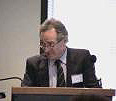 |
AUSTRALIA AND INDONESIA: PAPUA, DEMOCRACY AND COOPERATIONby Dr Richard Chauvel, Department of Politics, Victoria University, Richard.Chauvel@vu.edu.au |
|
The Rakyat Merdeka cartoon depicting John Howard and Alexander Downer as fornicating dingos intent on the separation of Papua is a discomforting example of a new democratic Indonesia. It underlines that not all Indonesian politicians and journalists share the rosy image of the relationship propagated by Howard and Downer prior to the arrival of the 43 Papuan asylum seekers. Their robust discussion also reflects the much greater political and media freedom Indonesians enjoy eight years after the fall of the Suharto government. Criticism of Australia has come from President Susilo Bambang Yudhoyono, other members of the government, and beyond. This range of voices illustrates how political power in Jakarta has become defused. Views expressed by parliamentarians, especially members of the Foreign Affairs and Defence committee (Komisi I), and journalists and commentators in the mass media carry weight and cannot be ignored by the President and Foreign Minister in their conduct of relations with Australia. Indonesian responses to the visa decision have been framed by their understanding of the history of relations with Australia. An article in the respected Jakarta daily, Suara Pembaruan, had a detailed chronology of Australian policies on Papua, starting with the Menzies government’s rejection of the Indonesian claim to Papua in 1950 through to Australia’s role in East Timor in 1999. The Rakyat Merdeka cartoon implies that Howard and Downer want to do with Papua what they did with Timor in 1999. The Golkar MP and member of the Komisi 1, Yuddi Chrisnandi, made the same association: ‘We should not forget that Australia was very influential in the process of the independence in East Timor. This has to be a lesson for us. The Australian Government’s granting of facilities to 42 separatist Papuans can be used as evidence to take |
Australia to the International Court.’ Chrisnandi made specific reference to the 1991 Santa Cruz massacre, a turning point in the momentum towards independence in East Timor: ‘According to intelligence data Australia had a scenario to make the Abepura riots [in Papua in March 2006] into a second Santa Cruz.’ Following this line of argument, the Indonesian Ambassador to Australia told the Komisi I that the Uniting Church in Australia supported the separation of Papua by disseminating information that there was genocide in Papua. The head of Nahdatul Ulama, Hasyim Muzadi, noted: ‘If there is involvement of the church [in Papuan separatism] this is not something new, it also happened in East Timor.’ In its protest note about the visa decision, the Indonesian government asserted that the ‘...decision negated the spirit of bilateral cooperation in particular to counter illegal migrants which both sides have painstakingly fostered in the past several years. This inconsistency will only weaken the commitment of the parties on this important issue.’ The Indonesian government had detected a ‘double standard’ in Australia’s approach to recent asylum seeker cases, given Australia had vigorously rejected asylum seekers from the Middle East. ‘Such a practice stands in stark contrast to the hasty accommodation given to the 42 Indonesian asylum seekers from Papua Province.’ When Yudhoyono announced that Indonesia would review cooperation with Australia, he specifically mentioned counter-terrorism, trans-national crime and illegal migration. In responding to Indonesian concerns with a Pacific Solution Mark II, the Howard Government might have created what the small group of Australian activists had failed to achieve over four decades?a larger and much more influential constituency for Papuan independence. |
Links:
|

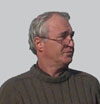 |
CONSOLIDATING THE STATE IN AFGHANISTANby Mark Turner, Professor of Development Policy and Management at the University of Canberra Mark.Turner@canberra.edu.au (Professor Turner spent January 2006 in Afghanistan as a member of a UNDP mission reviewing that organisation's current programs and advising on the strategic directions for future activity.) |
|
All post-conflict states are faced with the problem of how they are going to reconstruct the state after the fighting has ceased. The basic institutions of the state are often lacking or are functioning badly. This includes government departments, schools, clinics, police, the utilities, as well as the engineers, labourers and equipment to rebuild and maintain the infrastructure. Afghanistan presents an acute case of state disrepair. Traditionally the state has been centralised, fragmented and often distant from a scattered rural population. Twenty-five years of war exacerbated the traditional weakness of the state, culminating with the Taliban regime which was largely unconcerned with establishing the ‘infrastructural power’ of the state. Their mission was more selective—to impose Sharia law.
One of the leading aims of the newly elected (2005) government in Kabul is to extend its authority from headquarters and regional capitals into the small towns and villages that house most of Afghanistan’s population. The government must therefore create, revitalise, coopt or modify governance institutions located in its sub-national territories. This involves decentralisation. But too much decentralisation can encourage state fragmentation and promote bad governance; too little is likely to have an adverse effect on state efficiency and effectiveness, thus generating popular dissatisfaction with the government. In line with the Constitution, the government has chosen to pursue the ‘principle of centralism’ while delegating ‘certain authorities to local administration units’ and increasing popular participation in ‘the development of the nation’. While this may seem a cautious approach, it is radical in terms of Afghanistan and promises that the Afghan state will boldly go where no Afghan state has gone before. It is hoped that three new institutions will strengthen state control and promote improved welfare and service delivery. First, Provincial Development Councils have been established to overcome poor coordination of development activities in each of the country’s 32 provinces. Chaired by the Provincial Governor, each council’s membership includes the heads of the provincial offices |
of ministries and, in attached subcommittees, representatives from NGOs, aid agencies and other organisations engaged in developing the province. Secondly, each province has a Provincial Council. These bodies were elected in 2005 primarily to select members of the country’s upper house from within their own ranks. That being accomplished, the Provincial Councils are now exploring their future role, which is largely consultative and monitoring. They have no legislative powers but, in discussions in January 2006, their members stressed their role as the legitimate voice of the people. Thirdly, there are approximately 10,000 Community Development Councils in villages across Afghanistan. These elected councils perform a number of functions including political socialisation, empowerment and participatory development. They are the means by which the state is attempting to penetrate society at the grassroots level and consolidate itself in rural Afghanistan. The official aim is to have Community Development Councils operating in all of the country’s 20,000 villages by 2007. The state’s program of consolidation through creating and strengthening institutions of governance at the sub-national level faces many problems. These range from inadequate administrative and technical capacity through to the considerable extra-state influence of armed ‘commanders’ and their followers. However, the Afghan state has made undoubted progress in extending its influence across its territory and is aiming to transform the de jure state (one that is recognised by foreign governments) to a de facto state (one that actually controls and administers its territory).
Links:
|

Profile
This month we profile Richard
Woolcott, AC, currently Founding Director of the Asia Society
AustralAsia Centre. A former Secretary of the Department of Foreign
Affairs and Trade (1988-1992), Ambassador to the United Nations and
the Prime Minister’s special envoy to promote the APEC concept,
he served in four Asian countries as deputy to the High Commissioner
in Malaya, Commissioner in Singapore, Ambassador to the Philippines
and Ambassador to Indonesia. He is the author of The Hot Seat: Reflections
on Diplomacy from Stalin’s Death to the Bali Bombings published
by Harper Collins in 2003. |
||
|
What are your current preoccupations? How do these fit into the contemporary scene? |
What are your hopes
for Asian studies in Australia? Links:
|
|

Graduate of the month
|
|
Upon returning to Australia Joel enrolled in a Bachelor of Asian Studies at the Australian National University, majoring in the Arabic language and International Relations in the Asian Region. After graduating, his knowledge of Arabic led to employment with the Department of Education Science and Training (DEST), evaluating overseas qualifications. He then moved to the Department of Transport and Regional Services (DOTARS), working in the Aviation Markets branch. People often ask him what Asian Studies has to do with the Department of Transport. The answer is that it’s difficult to imagine a government department or large company today that doesn’t have an interest in Asia. In the aviation sector, China’s fleet is predicted to rise from several hundred to 2,000 aircraft within the next 10 years. This is a phenomenal growth market. Middle Eastern airlines such as Emirates, Gulf Air and Qatar Airways are also beginning to play a significant role in the global aviation market and have begun to express an interest in Australia. Joel is convinced the language, research and communication skills conveyed in an Asian Studies degree are likely to be sought after by all government agencies as they look towards an emerging Asia in the coming decades. Link: |

Website of the month
|
|
Recent article of interest
|
Jeffrey Robertson of the Parliamentary Library Information
and Research Services looks at the domestic political impediments in
South Korea preventing progress towards a Free Trade Agreement and at
the prospects this may change in the near future. See Time For An Australian-South
Korea Free Trade Agreement? http://www.aph.gov.au/library/pubs/RN/2005-06/06rn31.htm
|

Did you know?
|
|

Diary dates
|
CHINA & SE ASIA: Launch of The Paramount Power: China and the Countries of Southeast Asia 24 May, Melbourne. Launch of Dr Milton Osborne’s new paper for The Lowy Institute. 6.00 pm to 7.20 pm, Yasuko Hiraoka Myer Room, Sidney Myer Asia Center, University of Melbourne To reserve a seat, please send an email to: events@asialink.unimelb.edu.au with "Osborne" in the subject line. See also http://www.lowyinstitute.org TECH: Competitors or Collaborators? ICT in Australia & Asia, 29 May, Melbourne. A half-day conference for ICT strategists, professionals & students. Hear first-hand from Asian industry leaders from China, India and Korea; understand the strategies of Australian companies; listen to projections about the future of ICT in Australia and in Asia; Meet the people who will influence ICT's future. COST: $50/$35 (Full / Student & Asialink Member) Enquiries: Paul Davis, 03 8344 8474, p.davis@asialink.unimelb.edu.au 11TH ANNUAL ASIA OIL AND GAS CONFERENCE:"BALANCING THE INTEREST OF CONSUMERS AND PRODUCERS", 11 June-13 June, Kuala Lumpur. The Keynote address at the conference will be given by the Prime Minister of Malaysia. The President and CEO of Saudi Aramco, will give the state of the industry address. See http://www.aogc-petronas.com/ PUBLIC FORUM ON MODERN MALAYSIA, 2 June, Melbourne. The Monash Asia Institute is pleased to host, with the support of the Australia Malaysia Institute (DFAT), the Department of Foreign Affairs and Trade (Melbourne branch), the Asia Society and the Centre for Malaysian Studies (Monash Asia Institute) an afternoon of discussions about Malaysia with the Foreign Minister of Malaysia and the Minister for Higher Education. This event is an initiative of ASLI (Asia Strategic Leadership Institute), Malaysia's leading think tank. 1.30pm to 5pm, Park Hyatt, 1 Parliament Sq East Melbourne. More details from Tony.Donaldson@adm.monash.edu.au THE AUSTRALIAN ASSOCIATION OF BUDDHIST STUDIES (AABS), 16 June, Sydney. The AABX will hold its first conference at the University of Sydney For details, see http://www.buddhiststudies.org.au/. BLIND DATES & FOREIGN AFFAIRS - AUSTRALIA/ASIA ARTS RESIDENCIES 19 & 20 June 2006, Melbourne. Asialink's annual forum for 2006 will evaluate the place of residencies in arts programming generally and their value for individual arts workers, hosts and communities. Speakers include practitioners, hosts, funders, academics and commentators from Australia, Cambodia, Japan and Taiwan. Panels will be interspersed with an artistic program featuring work made by artists during overseas residencies. Bookings and enquiries to p.aitken@asialink.unimelb.edu.au ZEN MIND, ZEN BRUSH 15 June–13 August, Sydney. Japanese ink painting from the Gitter—Yelen Collection. Art Gallery of NSW, http://www.artgallery.nsw.gov.au 10TH ASIAN STUDIES CONFERENCE JAPAN (ASCJ), 24-25 June 2006, Tokyo. This conference will be held at International Christian University (ICU), Tokyo, on Saturday, June 24, and Sunday June 25, 2006. See http://www.meijigakuin.ac.jp/%7Eascj/ THE BOY and the BAMBOO FLUTE, 18-21 July, Adelaide. Inspired by the folklore and cultural traditions of Vietnam this play is about the epic adventure of a peasant boy and a princess, who overcome the destructive power of an evil demon with the aid of a bamboo flute. See http://www.patchtheatre.org.au/bbfa.htm |
ISLAM AND DEMOCRACY with Anwar Ibrahim, 21 July, Melbourne. Anwar Ibrahim will present a 30-40 minute lecture followed by a panel of commentators reflecting includinsg Dr David Wright-Neville (Politics Department, Monash) and Prof Michael Leigh (Asia Institute, Melbourne University). 6.00 pm-8.30pm Sidney Myer Asia Centre, Melbourne University. RSVP with subject heading "Islam and democracy seminar" to Dr Tony Donaldson, tony.donaldson@adm.monash.edu.au BORNEO IN THE NEW CENTURY, 31 July and 1 August 2006, Kuching Sarawak. Papers are invited for the Eighth Biennial Conference of the Borneo Research Council (BRC). These should present original research in any field relating to Sabah, Brunei, Sarawak, Kalimantan and its surrounding region. Abstracts, no longer than 100 words, must be submitted by email before 1 May to: Jchin@ieas.unimas.my or James.chin@lycos.com. For more details, see: www.borneoresearchcouncil.org RECONCILIATION BETWEEN JAPAN AND CHINA, workshop, August, Canberra. In August 2006, the Department of International Relations at Australian National University will host a workshop as the culmination of online discussion about the best ways to encourage reconciliation between Japan and China. The objective is to produce concrete and realistic policy proposals for enhancing security cooperation between the two Asian powers, especially with respect to their participation in the Six Party Talks on the North Korean nuclear issue and in the potential East Asian Community. See www.china-japan-reconciliation.blogspot.com ASIA-PACIFIC MISSIONARIES: AT HOME AND ABROAD, 2nd Biennial conference, 25-27 August 2006, Canberra. The conference will be held at the Coombs Lecture Theatre, Australian National University, Contact: Dr Ian Welch, ian.welch@anu.edu.au ASIA-PACIFIC TRIENNIAL OF CONTEMPORARY ART, 1 November-1 December 2006, Brisbane. The Asia-Pacific Triennial of Contemporary Art (APT) will be the opening exhibition at the new Queensland Gallery of Modern Art. APT 2006 will present the work of over 30 artists from Asia, Australia and the Pacific. It will feature a performance and cinema program, as well as a children’s festival. See http://www.qag.qld.gov.au/apt MEDIA: POLICIES, CULTURES AND FUTURES IN THE ASIA PACIFIC REGION, 27-29 November, Perth. the 2006 Signature Event conference for the Australia Research Council's Asia Pacific Futures Research Network (APFRN), organised by the Media-Asia Research Group (MARG) at Curtin University of Technology. See http://mediaasiaconference.humanities.curtin.edu.au THE AOTEAROA NEW ZEALAND INTERNATIONAL DEVELOPMENT STUDIES NETWORK CONFERENCE 30 November to 2 December 2006, Dunedin. The conference is entitled ‘Southern Perspectives on Development: Dialogue or Division?’, is to be held at the University of Otago, Further information is available from http://www.devnet.org.nz or contact devnet2006@geography.otago.ac.nz |

You are welcome to advertise Asia-related events in this space. Send details to: fbeddie@ozemail.com.au
Feedback
What would be useful for you? Human interest stories, profiles of successful graduates of Asian studies, more news about what's on, moderated discussions on topical issues? Send your ideas to fbeddie@ozemail.com.au
About the ASAA
The Asian Studies Association of Australia (ASAA) promotes
the study of Asian languages, societies, cultures, and politics in Australia,
supports teaching and research in Asian studies and works towards an understanding
of Asia in the community at large. It publishes the Asian Studies Review journal
and holds a biennial conference.
The ASAA believes there is an urgent need to develop a strategy to preserve,
renew and extend Australian expertise about Asia. It has called on the government
to show national leadership in the promotion of Australia’s Asia knowledge
and skills. See Maximizing Australia's Asia Knowledge Repositioning and Renewal
of a National Asset http://coombs.anu.edu.au/SpecialProj/ASAA/asia-knowledge-book-v70.pdf
Asian Currentsis published by the Asian Studies Association of Australia (ASAA) http://coombs.anu.edu.au/ASAA/ thanks to a grant from the International Centre of Excellence for Asia Pacific Studies (ICEAPS) http://iceaps.anu.edu.au. It is edited by Francesca Beddie. The editorial board consists of Robert Cribb, ASAA President, John Fitzgerald, Director, ICEAPS, Keith Foulcher, ASAA Secretary, Mina Roces, ASAA Publications officer, Tamara Jacka, ASAA Council member.

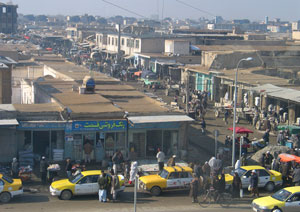
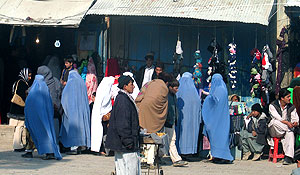
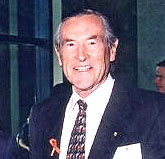 When
did you become interested in Asia and why?
When
did you become interested in Asia and why?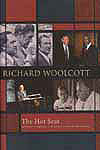 It
is very important that Asian Studies are not allowed to decline further
in this country. I hope that Asian Studies will be substantially increased
and adequately funded in all our universities and secondary schools.
I would hope too that non-governmental Asia-focused bodies such as Asialink,
the Asia Society AustralAsia Centre, the Asian Studies Association of
Australia and the Association for the Study of AustralAsia in Asia as
well as the various business councils attract greater corporate and
public support. I hope also that the government-funded bilateral councils
and institutes will be expanded and better resourced. It is also important
to promote more vigorously Asian languages in secondary schools and
universities, especially Indonesian, Chinese and Japanese. Moreover,
studies of Australian literature and art should be promoted more actively
in East Asian countries. All this suggests we need a more coordinated
approach to the promotion of Asian studies here and Australian studies
in Asia.
It
is very important that Asian Studies are not allowed to decline further
in this country. I hope that Asian Studies will be substantially increased
and adequately funded in all our universities and secondary schools.
I would hope too that non-governmental Asia-focused bodies such as Asialink,
the Asia Society AustralAsia Centre, the Asian Studies Association of
Australia and the Association for the Study of AustralAsia in Asia as
well as the various business councils attract greater corporate and
public support. I hope also that the government-funded bilateral councils
and institutes will be expanded and better resourced. It is also important
to promote more vigorously Asian languages in secondary schools and
universities, especially Indonesian, Chinese and Japanese. Moreover,
studies of Australian literature and art should be promoted more actively
in East Asian countries. All this suggests we need a more coordinated
approach to the promotion of Asian studies here and Australian studies
in Asia. Like
many Canberra teenagers, Joel Thorpe’s (
Like
many Canberra teenagers, Joel Thorpe’s ( http://www.mansfieldfdn.org/polls/index.htm
http://www.mansfieldfdn.org/polls/index.htm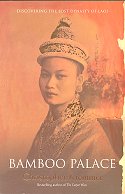 CHRISTOPHER
KREMMER AT ASIA BOOKROOM 23 May, Canberra. Journalist and author
Christopher Kremmer will be speaking at between 6pm and 8pm at the Asia
Bookroom, Unit 2, 1-3 Lawry Place, Macquarie. Kremmer's new book Inhaling
the Mahatma is set in India. E-mail
CHRISTOPHER
KREMMER AT ASIA BOOKROOM 23 May, Canberra. Journalist and author
Christopher Kremmer will be speaking at between 6pm and 8pm at the Asia
Bookroom, Unit 2, 1-3 Lawry Place, Macquarie. Kremmer's new book Inhaling
the Mahatma is set in India. E-mail  16TH
BIENNIAL CONFERENCE OF THE ASIAN STUDIES ASSOCIATION OF AUSTRALIA (ASAA)
ON “ASIA RECONSTRUCTED”, 26-29 June, 2006, University of
Wollongong.
16TH
BIENNIAL CONFERENCE OF THE ASIAN STUDIES ASSOCIATION OF AUSTRALIA (ASAA)
ON “ASIA RECONSTRUCTED”, 26-29 June, 2006, University of
Wollongong.